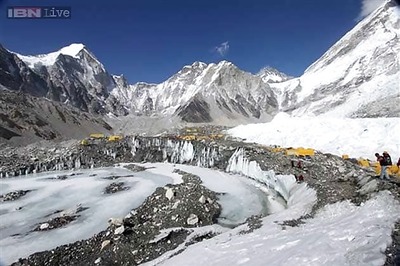
views
The death of protesting farmers at Lakhimpur Kheri—west Uttar Pradesh’s gateway to Avadh—fronted the state’s agrarian concerns regarding the Centre’s contentious farm laws.
What started as protests in west UP, to draw the state government’s attention to its inability to hike the state advisory price or SAP for sugarcane growers (until chief minister Yogi Adityanath increased it by Rs 25, his first in four years) and express solidarity with their counterparts in Punjab and Haryana, segued into a larger subject of agrarian distress across the state after the Lakhimpur Kheri tragedy.
The BJP could not have ignored the larger resonances in the villages. It was no longer about the better off Jat farmers or the landed castes; small and marginal farmers, who have formed the backbone of the BJP’s support since 2014, were as agitated about the Centre’s reluctance to enact a statutory guarantee assuring MSP and not leave them to the whims of the open market. Therefore, Prime Minister Narendra Modi’s announcement that the Centre would revoke the three “reforms”-oriented laws was strategically timed with his UP visit, which begins today.
The decision, the second significant one of its kind after the disputatious land acquisition amendments were frozen in 2015 following internal feedback and a strong remark from Rahul Gandhi, was pushed largely by the feedback the RSS and BJP received from ground zero in UP. On a recent visit to central UP, I came across BJP workers in at least three villages who were on a feedback recce from the pradhans, all farmers. Among the issues the pradhans listed were the Centre’s reluctance to give legal status to MSP (minimum support price), setting up more ‘mandis’ in the vicinity of their villages so that their dependence on the free market was minimised, increasing the supply of fertiliser and tackling the overcrowding of stray bovines or “lawaris pashu”. The first bothered the farmers, particularly the small and marginal peasants, who said the quantum of produce their lands yielded was such that it wasn’t worth their while to carry it to open markets, that were far away in the towns, or hire a tractor or a tempo to cart them. They wanted the government to set up more “mandis”, prescribe the MSP and make it punishable to violate the MSP.
So long as the farm laws exercised a section of the peasantry in west UP, the BJP believed it could cope with the fall-out. Even this was a misplaced notion because the Jats, at the forefront of the agitation, were largely BJP supporters since 1989, barring occasional swings towards the Opposition. Losing the Jat votes would have upset the BJP’s calculations although it was optimistic that the caste divide between the Jats and the OBC peasantry and the latter’s supposed preference for the BJP would have restored the equilibrium. Things can never be seen in isolation in socially dynamic UP. The rise of Chaudhary Jayant Singh’s RLD—catalysed by the endorsement he got from Rakesh Tikait, the BKU’s spokesperson—was a factor the BJP couldn’t ignore especially because the RLD (Rashtriya Lok Dal) is most likely to align with the Samajwadi Party (SP) that emerged as UP’s alternate pole. SP chief Akhilesh Yadav, who often seemed at a loss to zero in on issues and came across as reactive to the BJP, however, sensed an electoral goldmine in the agrarian issues and flagged them consistently in his campaign.
If the Centre hadn’t revoked the laws would the BJP have suffered greatly? It already had a slew of welfare measures, Hindutva (the Ram temple) and PM Modi’s “charisma” as selling points but the agrarian issues loomed in the backdrop. Had the SP’s campaign gained enough traction to prioritise livelihood concerns over Modi and ideology, the electoral trajectory could have taken a different turn.
In UP, the BJP was never known as a pro-farmers party. But the bench strength of those who won from the villages with agricultural roots demonstrated that it can no longer ignore this very crucial sector that holds up UP’s economy.
As always, the BJP’s reflexes kicked in when it realised it had to cut its anticipated losses. More than one farmer, after listing his grouses against the Centre and the state, told me he was confident that “Modi ji” would act and redress their complaints before the elections. Textbook strategy.
Radhika Ramaseshan is a senior journalist. She was the political editor at The Telegraph. The views expressed in this article are those of the author and do not represent the stand of this publication.
Read all the Latest Opinions here














Comments
0 comment